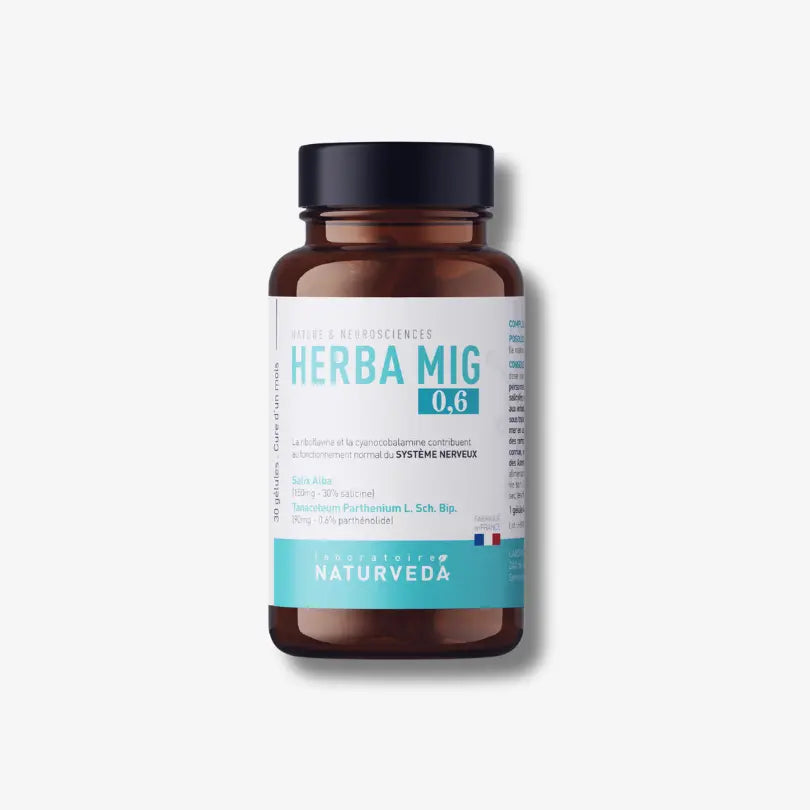For centuries, fennel has been used for its medicinal and culinary properties around the world. Among the different forms in which fennel can be consumed, tea occupies a special place for its beneficial effects on digestive health. What are the benefits of fennel tea for digestion? Discover how this soothing drink can transform your digestive health routine!
Learn more about fennel
Origins of fennel
Fennel is native to the Mediterranean region , where it grows wild. This herbaceous plant has been cultivated for its culinary and medicinal qualities for thousands of years. The Greeks and Romans already used fennel for its therapeutic properties. The Romans called it "foeniculum" and incorporated it into their diet and remedies for its digestive virtues and as a flavoring. In India and China, fennel has been used for centuries in cooking and traditional medicine. In Ayurveda, it is renowned for its beneficial effects on digestion and the balance of the doshas. In the Middle Ages, fennel was commonly used in Europe for its medicinal properties, particularly to improve digestion and as a remedy for snake bites.
Composition and nutrients of fennel
Vitamins
Fennel is a highly nutritious plant, rich in vitamins, minerals and bioactive compounds . Among the vitamins present, vitamin C stands out for its powerful antioxidant properties, which help strengthen the immune system, promote healing and maintain healthy skin. Fennel also contains vitamin A in the form of beta-carotene, essential for vision, skin health and the immune system. As for the B vitamins , they play crucial roles in protein metabolism, neurotransmitter production, and DNA production and repair.
Minerals
In terms of minerals , fennel is an excellent source of potassium , which regulates fluid balance, helps maintain healthy blood pressure, and supports nerve and muscle function. It also contains calcium , which is important for healthy bones and teeth; magnesium , which is involved in over 300 biochemical reactions in the body; and iron , which is essential for the production of red blood cells and the transport of oxygen in the blood. In addition, phosphorus , present in good amounts, is involved in the formation of bones and teeth and in energy production.
Fiber and antioxidants
Fennel is rich in dietary fiber , both soluble and insoluble , which helps regulate digestion, prevent constipation, and control blood sugar and cholesterol levels. In addition, it contains antioxidants (quercetin, kaempferol), flavonoids with anti-inflammatory and antioxidant properties, and anethole , the main aromatic compound in fennel, known for its antimicrobial and anti-inflammatory properties.
The benefits of fennel infusion for digestion
Relief from bloating and gas
Fennel tea is widely recognized for its ability to relieve bloating and intestinal gas . The active compounds in fennel, such as anethole, have carminative properties , meaning they help reduce gas formation in the gastrointestinal tract. Drinking fennel tea after a meal can help expel trapped gas and alleviate feelings of bloating.
Reduction of abdominal cramps
Abdominal cramps can be caused by a variety of factors, including indigestion, irritable bowel syndrome (IBS), or involuntary muscle contractions. Fennel tea has antispasmodic properties , meaning it can help relax the smooth muscles in the gastrointestinal tract . This muscle relaxation can reduce abdominal cramps and pain , providing natural, soothing relief.
Stimulation of bile production
Bile is essential for fat digestion. Fennel stimulates the liver to produce bile , which helps digest high-fat foods and improves nutrient absorption. By increasing bile production, fennel tea can help prevent digestive issues associated with poor fat digestion , such as bloating and discomfort.
Promotion of intestinal motility
Gut motility refers to the contractions of the muscles in the intestine that move food through the digestive system. Healthy intestinal motility is crucial to preventing constipation and maintaining regular bowel movements. Fennel contains fiber and bioactive compounds that promote intestinal motility, helping to prevent constipation and promote regular, healthy bowel movements .
Improved overall digestion
The compounds found in fennel, such as anethole, fenchone, and estragole, have digestive properties that improve the overall digestive process. By drinking fennel tea regularly, you can help stimulate gastric juices and digestive enzymes , which helps break down food and absorb nutrients. This improved digestion can reduce gastrointestinal discomfort and help with better assimilation of essential nutrients .
Reduction of acid reflux
Fennel may also help reduce symptoms of acid reflux . Its soothing and anti-inflammatory properties can calm an irritated esophagus and help prevent stomach acid from backing up . Drinking fennel tea after a meal can offer natural relief from heartburn and acid reflux .
Other Health Benefits of Fennel Tea
Antioxidants and fight against oxidative stress
Fennel is rich in antioxidants . These compounds help neutralize free radicals in the body, reducing oxidative stress. Excess free radicals can damage cells and contribute to the development of chronic diseases (cancer, heart disease, premature aging). By drinking fennel tea, you can increase your antioxidant intake and help your body protect itself from this damage.
Anti-inflammatory properties
Anethole , one of the main active compounds in fennel, has anti-inflammatory properties . This may be beneficial in reducing inflammation in the body, which is especially helpful for people with chronic inflammatory conditions like arthritis.
Strengthening the immune system
Fennel is a great source of vitamin C , a powerful antioxidant that plays a crucial role in strengthening the immune system. Vitamin C stimulates the production of white blood cells , which are essential for fighting infections. Drinking fennel tea regularly can help boost your immune defense and prevent common illnesses like colds and flu.
Benefits for the respiratory system
Fennel tea can benefit the respiratory tract due to its expectorant properties. It helps relieve coughs, colds, and bronchitis by helping to expel mucus from the airways. The aromatic compounds in fennel can also help open the airways and make breathing easier, ideal for those suffering from respiratory conditions.
Hormonal balance
The phytoestrogens found in fennel can mimic the effects of estrogen in the body. This can help regulate menstrual cycles and relieve symptoms of menopause . For women suffering from hormonal imbalances, fennel tea can offer natural support to alleviate these symptoms.
Antimicrobial properties
Fennel has antimicrobial properties that can help fight bacterial and fungal infections . Fennel tea can be used as a natural remedy to help prevent and treat minor infections , especially those of the digestive system and urinary tract.
Conclusion
In short, fennel tea proves to be a valuable ally for digestive health. By promoting better digestion and helping to regulate intestinal transit, fennel contributes to overall digestive well-being. Incorporating this infusion into your daily routine can not only provide quick relief from gastrointestinal discomfort, but also improve your quality of life in the long term.






